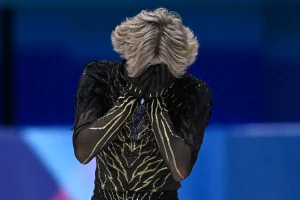Jiro Ono: A Lifetime Dedicated to the Pursuit of Perfect Sushi
Jiro Ono, the legendary sushi chef, dedicated his life to perfecting his craft. Until the age of 97, he presided over Sukiyabashi Jiro, his intimate 10-seat sushi restaurant nestled within a Tokyo subway station. This unassuming location belied the restaurant’s prestigious three Michelin stars and its notoriously exclusive reservation system, accessible primarily through hotel concierges and select connections. This exclusivity evolved from a previously open reservation policy, which, despite an eight-month waiting list, still allowed a wider public access to Jiro’s culinary artistry. The 2011 documentary "Jiro Dreams of Sushi" offered a glimpse into the world of this 85-year-old master, revealing his unwavering dedication to continuous improvement and a lifelong pursuit of excellence. His philosophy, rooted in the Japanese concept of "shokunin," or artisan spirit, transcends the culinary realm, offering valuable insights into achieving mastery in any profession.
Jiro’s relentless pursuit of perfection was the driving force behind his remarkable career. Even as he approached 100, his daily goal was to surpass the quality of the sushi he crafted the day before. This unwavering commitment demonstrated the heights achievable through complete dedication. "If you don’t chase perfection, you will never reach excellence," he proclaimed, a testament to his belief in continually pushing boundaries. His eldest son, Yoshikazu Ono, has since taken the helm of Sukiyabashi Jiro, inheriting his father’s legacy and continuing the pursuit of culinary excellence that has defined the establishment.
Lessons in Mastery from a Sushi Legend
Jiro’s journey provides invaluable lessons for entrepreneurs and professionals alike. His deep passion for his work was evident in his declaration, "I’ve never once hated this job. I fell in love with my work and gave my life to it." This love was so profound that he eschewed holidays, eager to return to his restaurant. Even at 85, retirement was an alien concept. His focus remained steadfast on the quality of his sushi, not profits, finding value in his dedication to his craft and serving others with unparalleled excellence. He believed that if a dish did not meet his exacting standards of taste, it was simply unfit to be served. This unwavering commitment to quality serves as a powerful example for anyone seeking to find fulfillment in their work.
Jiro’s pursuit of perfection was an ongoing journey, a constant striving for improvement. "There is always a yearning to achieve more. I’ll continue to climb, trying to reach the top, but no one knows where the top is," he mused. Even after seven decades of experience, he believed in continuous improvement, constantly raising his standards in tandem with his evolving skills. He advocated for "ultimate simplicity" as a pathway to purity, encouraging others to set impossible standards and push beyond mere adequacy. This relentless pursuit of perfection, he believed, fostered a sustainable level of excellence that remained unmatched.
Mastering Every Detail and Building Systems for Excellence
Jiro’s mastery extended beyond his personal skills to encompass every aspect of his restaurant. He meticulously examined each ingredient, instilling the same rigorous approach in his apprentices. He famously tasked his apprentice, Daisuke Nakazawa, with making tamagoyaki (egg sushi) over 200 times before deeming it acceptable. While acknowledging the role of natural talent, Jiro emphasized that dedication and consistent effort were the true keys to skill development. This meticulous attention to detail permeated every facet of his work, setting a precedent for his entire team.
Jiro cultivated a culture of excellence within his team, encouraging them to constantly seek improvement. "When you work for someone, always think about how you can do better than they did," he advised. This philosophy manifested in hours of meticulous preparation before each service. He stressed the importance of consistent effort and repetition, building robust processes to maintain quality at scale. By documenting successful practices and rigorously training his team, he created a system that allowed for both innovation and the unwavering maintenance of exceptionally high standards.
Embracing Constraints and Taking Extreme Ownership
Despite operating within the confines of a small subway kitchen, Jiro never viewed limitations as obstacles. Instead, he saw them as opportunities for innovation. He continually sought ways to elevate traditional sushi, emphasizing that his techniques were accessible to anyone willing to learn. The limited seating capacity, rather than a hindrance, became a catalyst for efficiency, enabling quick table turnover. This resourceful approach demonstrated how constraints could fuel creativity and become a source of competitive advantage.
Jiro’s philosophy extended beyond the kitchen, encompassing a deep sense of personal responsibility. He believed in complete immersion in one’s chosen occupation, advocating for relentless self-improvement. His own self-criticism served as a constant driver of growth, pushing him to continually raise his standards. This unwavering commitment to personal development, coupled with a focus on controllable factors, exemplified his belief in taking extreme ownership of one’s work.
The Enduring Legacy of Jiro Ono
Jiro Ono’s legacy transcends the culinary world. His unwavering dedication to his craft, his relentless pursuit of perfection, and his focus on continuous improvement offer invaluable lessons for professionals in any field. His philosophy serves as a blueprint for achieving mastery, demonstrating that extraordinary achievement is possible at any age with dedication, passion, and a commitment to lifelong learning. Jiro’s life and work stand as a testament to the power of pursuing excellence, not for external reward, but for the intrinsic satisfaction of pushing the boundaries of one’s potential.










